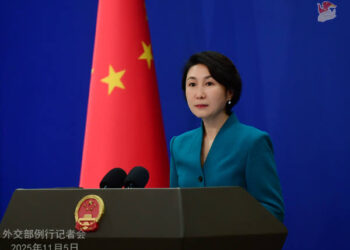LAHORE – University of Management and Technology Dean Prof Bob Wheeler has said that Pakistan’s economy would flourish due to Chinese investment of 46 billion dollars under China Pakistan Economic Corridor (CPEC).
While talking to The Nation, he said that the UMT School of Business Economics (SBE) was all set to meet the requirements and demands of the CPEC in terms of producing business leaders and entrepreneurs.
“A good number of jobs like managers, accountants and financial experts will be generated due to CPEC” he held.
All the cities of Pakistan including Lahore, Karachi, Faisalabad, Peshawar, Multan etc would be the beneficiaries of the corridor.
“Pakistani academia and business community should be prepared to meet the challenges of the new era of CPEC,” he said, adding that CPEC is not merely a road infrastructure project rather it would boost textile mills, other industries and resolve the energy crisis.
He also vowed to introduce new teaching technology instead of depending upon the traditional one.
Giving an example of China, he said, “After some time Pakistan will be able to address issues it has been facing like energy crisis.
”
He said that he wanted his faculty and students to focus on research oriented work.
“I think Pakistani students should have more concentration on research instead of reading only.
By focusing on case studies and theme based work the students could get enough from business school of the university,” he commented.
There is dire need to organize refresher courses for the teaching faculty at universities, he stressed.
Responding to a question on business curriculum, Wheeler said: “Many of the Pakistani universities like LUMS, IBA and LSE have focused on curriculum development but the teaching methodology is old”.
Theere is a need is to develop it too keeping in mind future needs, he added.
He said that he had enough experience of teaching at USA, Africa, Russia, and Pakistan.
He said there was a need to convince the Pakistanis, especially businessmen, to pay more taxes.
He said that his institution will play a role in producing businessmen who would feel proud to pay taxes to the state.
Wheeler also talked about his way of teaching.
He said he wanted his students to visit industries and other business hubs to prepare for future’s practical requirements.
“I like the faculty and the students who focus more on practical than theory,” Bob said, adding that at least 25% of the total academic time must be spent working with the industrialists.
“By resolving energy crisis, involving Smeda-like organizations, the issues of new entrepreneurs could be resolved,”he suggested.
Education, he said was the answer to all problems.
He said that the UMT was helping the needy but intelligent students.
“No capable student should be out of campus just because he does not much money to study,” he said, adding that the university was fully aware of this.
Bob Wheeler has extensive experience of corporate and academic sectors based in the USA, Africa, Middle East and Pakistan.
Moreover, he showed keen interest in leading the business school of the University.
Bob Wheeler has also worked as a corporate attorney at major firms in New York City and Washington, DC.
He served as the Director of MBA Admissions at Georgetown University, and as Assistant Dean and Director of the MBA Program at the Pennsylvania State University.
He was the chief operating officer for Executive Education at the University of Texas at Austin and was a member of the faculty at Penn State and Texas, teaching Business Communications.
Bob Wheeler was the Chief Operating Officer for the Aga Khan’s University of Central Asia based in Kyrgyzstan (responsible for the construction of three campuses of the university in Tajikistan, Kyrgyzstan, and Kazakhstan).
He was a consultant to the Tony Elumelu Foundation in Nigeria on a new business school, and he also helped develop the curriculum for an online entrepreneurship curriculum for a major initiative that promoted entrepreneurship across Africa.
Bob Wheeler holds a Juris Doctorate from Syracuse University and a Masters in Business Administration from Georgetown University.


















